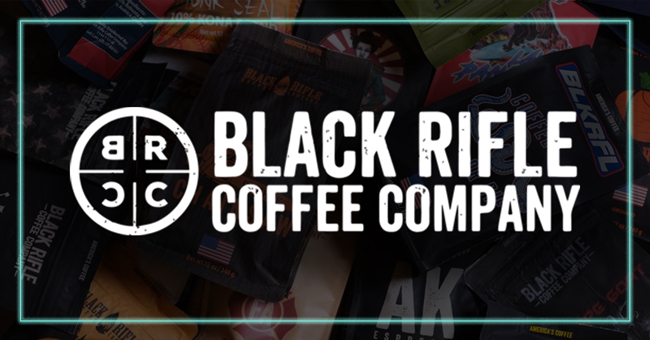Off the back of announcing an over 30% year-over-year increase in net revenue in Q4, veteran-owned coffee company Black Rifle outlined its “deliberate” growth strategy primarily focused on RTDs and the Food, Drug and Mass (FDM) market.
“The momentum of the Black Rifle Coffee brand has been incredible throughout 2022,” said founder and CEO Evan Hafer in a statement. “We’ve moved from a small, niche DTC brand to a mainstream CPG business in less than a couple of years.”
Though direct-to-consumer revenue decreased 8.1% to $45.6 million in the fourth quarter, compared to $49.6 million the year prior, wholesale revenue increased 140.1% to $41.2 million, driven by expanded points of sale and “strong retail velocities.” During FY 2022, Black Rifle landed its RTD products in 20,000 additional doors.
Over the past year, Black Rifle made a strong entrance into the brick-and-mortar café channel with the addition of its Outposts. In Q4, the company added company stores in the “core markets” of Texas and Arizona, ending the year with 26 Outposts, 15 of which are company owned and the remainder franchises. Revenue from the segment increased 34.1% to $6.8 million during the quarter.
Moving forward, however, the coffee company plans to “continue refining [its] prototype model to ensure [its] Outpost can reach demanding return thresholds before ramping up execution,” choosing to prioritize internal bandwidth and capital on FDM and RTD sales.
“We’ve decided to phase our growth decisively, prioritizing FDM and ready-to-drink sales in the near term, which will also maximize short and long-term profitability,” said co-CEO Tom Davin during the earnings call. “This shift in focus frees up cash from reduced capex and SG & A given that growth in FDM and RTD is asset light.”
For the full year, net revenue was $301.3 million, up 29.3% from 2021. Gross profit was up 10.6% year-over-year with an adjusted EBITDA of $34 million.
According to Nielsen data cited on the call, less than six months into Black Rifle’s initial launch in Walmart, the company represented 3.5% of the store’s total coffee business. The share continues to accelerate, reaching 3.8% through the end of February.
“Needless to say we are excited about the consumer response and the initial response results. We are committed to deepening our current relationship and maximizing the opportunity at hand with FDM,” said Davin. Looking ahead, the company is looking to add a new FDM account during the summer 2023 reset period.
As it continues to shift from a primarily DTC to omnichannel business, Black Rifle’s marketing strategy will reflect that transition. Marketing spend will be allocated to high level brand awareness and wholesale-specific campaigns, according to Davin.
In response to persistent inflationary pressures, Black Rifle is taking additional price increases across all channels of its business, which started with RTDs in February. In Q1 2023, the company is set to increase prices for its DTC consumer subscribers. Despite the price hikes, the company said its “consumers have not exhibited any tendencies to trade down” nor has the company seen a drop in coffee consumption.
The company has adjusted its 2023 full-year projections, noting it was “overly ambitious” with its preliminary outlook delivered in August due to market variables such as the timing of various loading cycles and customer onboarding within the wholesale channel for coffee and RTD. Black Rifle has reset its target revenue to a range of $400 million to $440 million, or approximately 33% to 46% growth over 2022’s $301 million revenue. The company expects gross margins to be in the range of 36 to 37%.
“Even with the lower revenue range, we’re committed to $5 million to $20 million of adjusted EBITDA […] this is actually very similar to the 2023 outlook we provided when we went public a little over a year ago,” said Davin.
